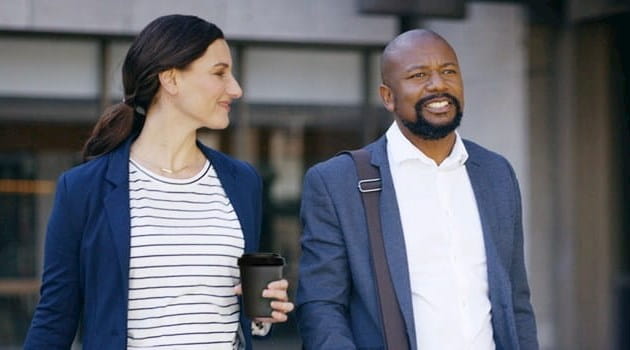“‘An equitable, nature-positive and carbon-neutral future’, is a phrase that you will be hearing more and more,” says Gough. “We cannot look at climate in isolation. Nature, people and climate are all interdependent and we can’t solve one without the others.”
He points out that accounting will play an essential role in delivering the Paris Alignment as it is needed to robustly inform decision-making. “Including the value of a stable climate, healthy ecosystems and thriving communities, is as important as including the financials,” says Gough.
As to whether the accounts are adequate as a reporting mechanism in the context of Paris alignment, Gough says: “I would argue that most of the information that is included in the accounts at the moment, doesn't provide enough ‘useful and relevant’ information (as defined through the IFRS Conceptual Framework). The figures included in accounts will tell us the number of things, e.g., 1,000 tonnes of carbon dioxide, but not what this means to society or the business.”
Making the information more useful
There are ways to make this information more valuable though and the Capitals Coalition is curating efforts around the world to advance practice and application in this area, with significant and growing success. The work is based around the idea of capital, or a stock of value that can be invested to create ‘returns’. But instead of thinking of just financial capital the concept has been expanded to cover natural, social and human capital as well. As with financial capital, if we withdraw too much from the capital stock, we will limit its ability to provide us with value into the future. If we invest in the stock and use it wisely, we increase its ability to create value for both current and future generations.
We have been severely depleting our global stocks of natural capital and this is leading to the collapse of the ecosystems that both our social and economic prosperity depend on.
How do you include this less tangible value that you receive from nature and people into your accounts? “Well, there are lots of people within our community that are working on this question.” says Gough. The Natural and the Social and Human Capital Protocol’s provide internationally accepted frameworks to identify and measure this value, and to use it to inform decision-making. Sector guides and supplements already exist for the Protocols, and they are now being strengthened further with recommendations for standardization, which will provide consistency around what and how to include it.”
“And explaining the numbers becomes particularly important in regard to climate change” says Gough, “because it affects us all. A stable climate is a global shared asset, and therefore we all have a role to play in protecting it as well as adapting to the changes we are already seeing.”
Don't be put off by the long road ahead
Mark concedes that there is still some way to go before all companies include the value they receive from all of the capitals in all of their decisions, but argues that they should not be put off.
It’s not just companies who are becoming interested in this approach, it also sits at the heart of several significant global frameworks and commitments such as the updated UK/US Atlantic Charter, the recommendations that came out of the UK Treasury’s Dasgupta Review, and the new UN Convention on Biological Diversity’s post-2020 Global Biodiversity Framework.
Gough says the accounting profession has the skills to develop a leadership role in this area in both the public and private sectors, but admits that accountants do not have the knowledge to do so yet. “Accountants are qualified to take information, understand it, break it down, make sense of it and present it in a way that can help inform decisions,” he says. “But, at the moment, they don't know what to do with the climate, biodiversity and inequity data that they acquire. That's where there is a gap, and that's what we've got to work on.”
Growing demand for accountants focused on climate
He says he has seen a growing market for accountants who do have this knowledge. “If you learn how to develop that knowledge as an accountant, you're going to be in great demand,” he points out.
“The notes to the accounts are also an important starting point and there will always be a need for qualified and quantified information beyond the accounts to explain the numbers. There is also a growing community of practice who are realizing value accounting in practice, and it is helping them to acquire preferential finance, engage with regulators, create efficiencies in their business and make generally more informed decisions. And this says nothing about the associated benefits for the world.”
Does Gough think existing reporting standards are sufficient or do standard-setters need to do more? He points to the new International Sustainability Standards Board being established by the IFRS Foundation, which is uniting approaches at an international level, and regional attempts such as the Corporate Sustainability Reporting Directive in Europe and the Securities and Exchange Commission (SEC) in the United States. “There is a lot of positive activity in the external disclosure space” says Gough “but we have to always remember that before you can report, you have to have done something, and therefore there has to also be a focus on internal decision-making and improving the businesses impacts and dependencies as well as what we disclose.”
A pool of sustainability information
As for the ideal reporting medium for all this information, Gough agrees that there is scope for radical thought. “The way in which businesses go about reporting at the moment is to collect information throughout the year, and then, at the end of the year, they'll push it through a pipe and use it to try to tell people what they do. The world has changed, massively though and we are all now able to gather information from many other sources. The disclosure pipe that we are using is leaking information all the time. This is pooling into a lake, and most investors, stakeholders and shareholders will go to the lake, not the pipe, to get their information,” he says.
“We now need to start thinking about how we can filter the lake to get to the information that we need. This involves the digitisation of data, and the flow of information, getting the right information to the right people at the right time.”
“When we start thinking about Paris-aligned accounts” he says, “we need to include the value we create, preserve and destroy across all capitals.” He continues, “although leading companies are already doing this, there are clear signs that this will become mandatory and therefore the accounting profession needs to be ready”
Paris alignment then for him, means reflecting not just climate impacts, but nature and people as well.
COP26: acting together
Find inspiration, information and practical resources to support the goals of the UN Climate Change Conference in Glasgow and explore why it represents a critical time for the profession.


